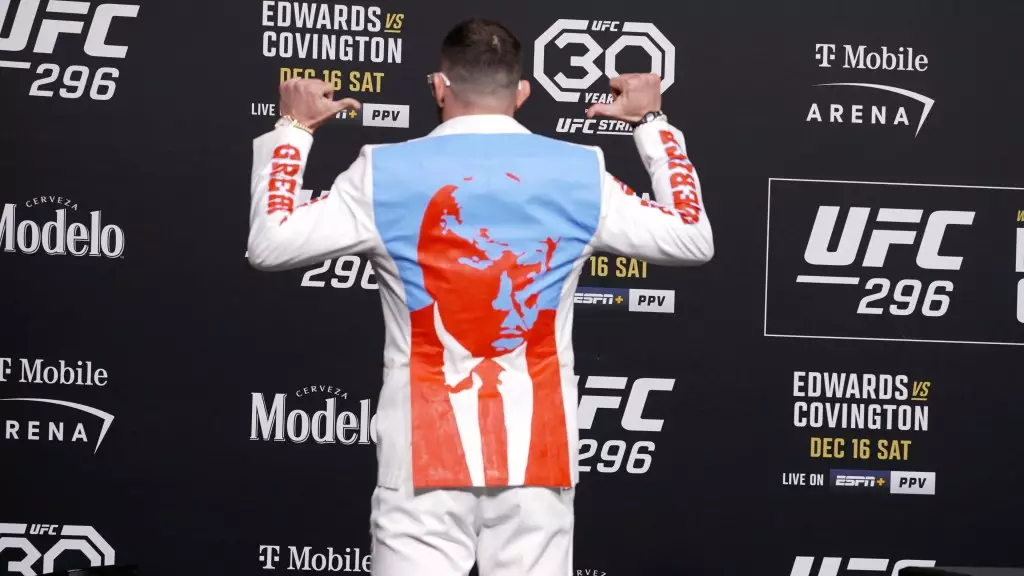In the world of mixed martial arts (MMA), few figures are as polarizing as Colby Covington. With a record of 17-5 and an identity firmly planted in the realm of ‘the heel,’ Covington has woven a narrative that has, undeniably, catapulted him into the limelight. The brash provocateur has transformed his persona into a cash cow, leveraging it to garner fight promotions and fan interest. Yet, the question looms larger by the day: Is this theatrical persona a true reflection of who Covington is as a person, or merely a façade intended to maintain his relevance in a ruthless sport?
From Rising Star to Controversial Figure
Covington initially garnered attention for his fighting skills inside the octagon. However, it was his controversial antics—often laced with political undertones and a willingness to offend—that truly set him apart. Embracing a character reminiscent of a WWE villain, Covington has positioned himself as a vocal supporter of the former President Donald Trump and frequently adopts a confrontational tone towards his peers. This relentless commitment to an ‘in-your-face’ style has led many to question the sincerity of his words and actions.
Recently, Paul Felder, an insightful commentator on the UFC scene, expressed skepticism regarding Covington’s authenticity, particularly in light of recent encounters with former rivals such as Kamaru Usman. Felder’s observations highlight a shift; the over-the-top bravado seems to contrast starkly with Covington’s quieter demeanor in personal interactions. This dissonance begs an exploration of whether Covington can genuinely uphold his combative character.
The Dissonance of Authenticity
One illuminating moment came when Paddy Pimblett, another prominent figure in MMA, recounted his own experience with Covington, claiming that the latter exhibited a drastically different demeanor in person than the one fans see online. Consternation arises when a fighter known for loud, confrontational speeches refrains from maintaining that energy during face-to-face encounters. The juxtaposition suggests a man grappling with the identity he has crafted—an identity driven by the need for public engagement that now feels somewhat hollow.
Felder’s commentary amplifies this discourse, pointing out that much of Covington’s trash talk seems fabricated. The notion that Covington’s bravado could merely be a strategy employed for personal gain raises ethical questions about the line between performance and authenticity within the sport. As fighters cultivate their personas, what toll does it take on their sense of self? Covington’s insistence on maintaining a character that stands in stark contrast to his quieter reality serves not only to entertain but to magnify the contradictions that many performers grapple with in their professional lives.
Navigating the Fight for Relevance
At the heart of this dialogue lies Covington’s struggle to remain significant in an ever-evolving landscape of MMA. Felder implies that this persona—rooted in the archetypical ‘American bully’ motif—is not sustainable. The present challenges facing Covington are perhaps a reflection of the fleeting nature of fame in combat sports. As athletes compile their fight records, they must also confront the legacies they leave behind; the question remains whether Covington will acknowledge the façade once the attention shifts elsewhere.
In a sport where authenticity often resonates better with fans, Covington’s ability to connect genuinely with the audience is in jeopardy. Whether one views him as a brilliant entertainer or a mere provocateur, the reality is that the fight for relevance outside of the octagon may require a more sincere persona. The narrative of Colby Covington is not just an intriguing subdivision of MMA; it embodies the larger conversation about identity, performance, and the lengths individuals will go to in order to capture attention in today’s media-saturated environment.

